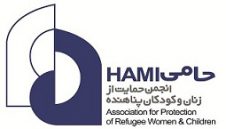Focusing on SGD4 and trying to ensure retention in Education Centers (first est. in 2008), HAMI has included their mothers in literacy courses, life skills & vocational training. There are 6 centers in 4 provinces. Emphasis has been put on revision of discriminatory policies, e.g. the 2002 campaign involving the president & the 2015 Supreme Leader Decree allowing all Afghan children, regardless of status, to study in Iranian schools. To incorporate it into national law, HAMI lead & contributed to a national regulation (2016). Following the Decree, half a million Afghan children were expected to join the system.
Specific Contribution to the Advancement of Girls’ and Women’s Education:
(Please check all the boxes; namely, Participation, Literacy, Environment, Teachers, Skills)
HAMI mainly focused on preventing SGBV as the main culprit for girls’ and women’s interrupted learning cycle. More than 2 decades of experience has demonstrated to HAMI that although interactive workshops and awareness raising campaigns are effective tools, nothing works as efficiently and effectively as close collaboration with male-decision makers with an aim to actively advocate for girls’ and women’s basic rights such as the right to education. To access key community stakeholders in Afghan communities that live in disperse, remote and hard-to-reach areas HAMI activated its network of educated Afghan youth who were eager to volunteer as the agents of change in their community. Many of the said youth, developed their personal and professional capacity with HAMI as volunteers and some are now continuing the trajectory in Afghanistan while other went on to further contribute to their community as community teachers or focal points.
Continue advocating for all institutions to allocate specific resources to cover specific needs of women and children at risk. 2- Focus more on psychosocial training for children, parents/caregivers, teaching personnel & host community members. 3- Continue advocating for Advocacy maximum registration at public schools with low drop-out rates. 4- Expand its participatory approach in all locations where it has established Basic Education Centers and upon availability of fund scale up the effort and draw on a wealth of experience derive from 12 years of successful implementation in other urban and pri-urban areas. 5- Establish new Centers & offer day-care to adult female learners, psychosocial support workshops & life skills course, offer transportation in collaboration with city officials. 6- Ensure disabled children’s access to education through collaboration with Iran’s SWO.
